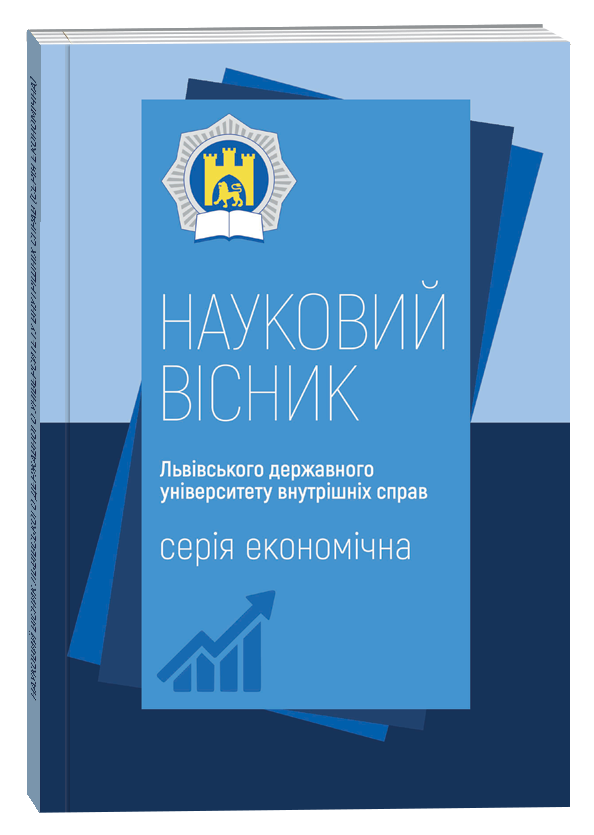CONSEQUENCES OF THE INFORMAL ECONOMY A CASE OF UKRAINE
Keywords:
shadow economy, informal economy, consequences of the informal economy, indicators of economic and social developmentAbstract
One of the main characteristics of the transitive countries is flourishing of the shadow economy. A comprehensive literature analysis of the shadow economy showed that it affects many aspects of economic and social life of countries. All aspects of country development can be eroded by the informal economy. The literature within the topic of the shadow economy lacks explanations regarding the shadow economy influences socio-economic characteristics. The reason behind this might be that the shadow economy affects human development through the channel of economic and social environment. The negative impact of the shadow economy is more visible. The shadow economy in transitive countries is typically more than 25 percent of national income and it is called the informal economy. That is why the article is devoted to the actual issues of the study of the informal economy in the context of the factors that it influences. The objective of this paper is to contribute to the literature by empirical research of the effect of the shadow economy on economic and social development. Moreover, one of the missions of this research is to emphasize the importance of the shadow economy as a social phenomenon. The authors, based on the systematization of scientific research, identify the consequences of the informal economy for various groups of economic interests. Factors influencing the decision to go to the shadow economics are complex and discussed in the article. In particular, the consequences are divided factors of influence, such as: economic-financial, public administration, legal, social, resource, personal and image. The main result of the theoretical analysis, which is based on the indicators of Ukraine, is the conclusion that under other equal conditions, the informal economy has a negative impact on the indicators of economic and social development.
References
Barro R., Sala-i-Martin X. 1997. Technological diffusion, convergence, and growth. Journal of Economic Growth. 1997. No 2 (1). Pp. 1–26.
Grosse R., Trevino L. J. 2005. New institutional economics and FDI location in Central and Eastern Europe, MIR: Management International Review. 2005. Р. 123–145.
Mauro P. 1995. Corruption and growth. The Quarterly Journal of Economics. 1995. Vol. 110. No. 3. Aug. 1995. P. 681–712.
Albert M. 1993: Capitalism Against Capitalism, London: Whurr Publishers.
Johnson S., Kaufmann D. and P. Zoido-Lobatón, 1998. Regulatory discretion and the unofficial economy. The American Economic Review. 1998. № 88/2. Р. 387–392.
Johnson S., Kaufmann D. and P. Zoido-Lobatón. 1998. Corruption, public finances and the unofficial economy (Washington, D.C.: The World Bank, discussion paper).
Yair Eilat and Clifford Zinnes, 2002. The Shadow Economy in Transition Countries: Friend or Foe? A Policy Perspective World Development. Vol. 30. Issue 7. P. 1233–1254.
Frey B. S., Weck H. 1983. Bureaucracy and the Shadow Economy: A Macro-Approach. In: Hanusch H. (eds) Anatomy of Government Deficiencies. Springer, Berlin, Heidelberg, Available at. URL: https://link.springer.com/chapter/10.1007%2F978-3-662-21610-1_6
Torgler, Benno and Schneider, Friedrich G., 2007, Shadow Economy, Tax Morale, Governance and Institutional Quality: A Panel Analysis IZA Discussion Paper. No. 2563; CESifo Working Paper Series. No. 1923. Available at SSRN. URL: https://ssrn.com/abstract=960012
Feige E. L. 2005. The underground economy and the currency enigma (Working Paper). Available at. URL: https://www.researchgate.net/publication/23747705_The_Underground_Economy_and_the_Currency_Enigma
Офіційний сайт The World Bank Group. URL: https://lpi.worldbank.org/
Montada L., Schneider A. 1989. Justice and emotional reactions to the disadvantagedʼ. Social Justice Research. Vol. 3. P. 313–344.
Офіційний сайт Transparency International. URL: https://www.transparency.org/





